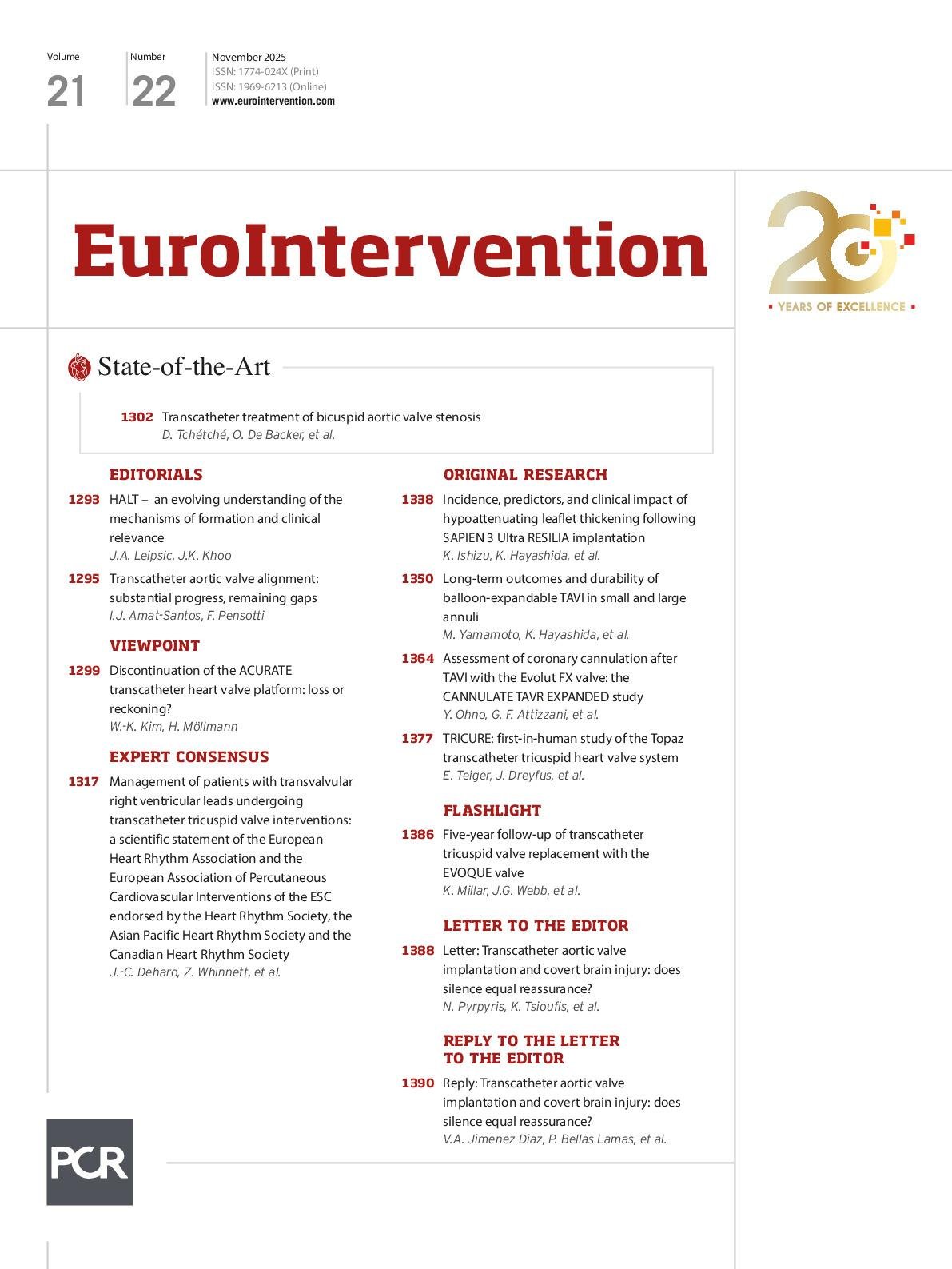Transcatheter tricuspid valve replacement (TTVR) is an alternative treatment modality for a subset of patients with severe tricuspid regurgitation who are unsuitable for traditional surgery or transcatheter edge-to-edge repair. One TTVR device, the EVOQUE valve (Edwards Lifesciences), has recently become the first TTVR device to receive U.S. Food and Drug Administration approval for the treatment of severe tricuspid regurgitation. Reported midterm outcomes of the EVOQUE valve have been favourable, demonstrating reductions in tricuspid regurgitation, symptom burden, and heart failure hospitalisation rates12. However, there remains a paucity of data on long-term outcomes following TTVR with the EVOQUE valve. A 69-year-old female patient with a background history of rheumatic heart disease, mitral valve commissurotomy, and subsequent mechanical mitral valve replacement (St. Jude Medical 25 mm mechanical prosthesis) presented with New York Heart Association (NYHA) IV dyspnoea, refractory peripheral oedema, ascites, and multiple recent heart failure hospitalisations. Transthoracic echocardiography (TTE) revealed a left ventricular ejection fraction of 50%, a dilated right ventricle (RV; basal diameter of 46 mm) with mildly reduced function (tricuspid annular plane systolic excursion [TAPSE] of 9 mm),...
Sign up for free!
Join us for free and access thousands of articles from EuroIntervention, as well as presentations, videos, cases from PCRonline.com

